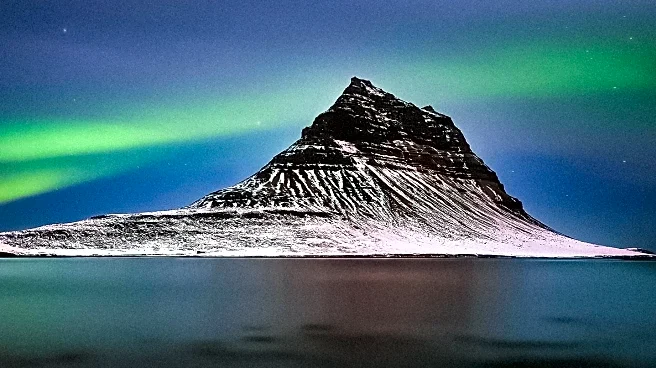What's Happening?
Iceland marks the first official day of winter with calm and cool weather conditions. According to the Icelandic Meteorological Office, temperatures range from -1°C to +4°C, with the mildest weather in the southwest and south coast. Northeastern regions
are experiencing the coldest temperatures, with Akureyri and Húsavík dipping below -1°C. Light winds and partly cloudy skies are prevalent, with sunshine expected in the northeast and southeast. Reykjavik is seeing temperatures around 1°C with occasional cloud cover and light westerly winds.
Why It's Important?
The onset of winter in Iceland signifies the beginning of the dark season, a period marked by shorter daylight hours and colder temperatures. This transition impacts various aspects of Icelandic life, from agriculture to tourism. Farmers traditionally prepare for the cold months ahead, while the tourism industry adapts to offer winter activities such as geothermal pool visits, Christmas markets, skiing, and Northern Lights tours. The calm weather provides an opportunity for residents and visitors to engage in these seasonal activities, contributing to the local economy.
What's Next?
As winter progresses, Icelanders will continue to embrace winter traditions and activities. The tourism sector is likely to promote winter attractions, drawing visitors interested in experiencing Iceland's unique seasonal offerings. Weather conditions will be closely monitored, with potential snow showers expected in the north and east overnight. The strengthening of winds along the south coast may influence travel plans and outdoor activities.
Beyond the Headlines
The first day of winter in Iceland reflects cultural and historical significance, rooted in the old Norse calendar. This period serves as a reminder of the resilience and adaptability of Icelandic society in facing harsh weather conditions. The celebration of winter traditions fosters community spirit and highlights the importance of preserving cultural heritage amidst modern challenges.


















